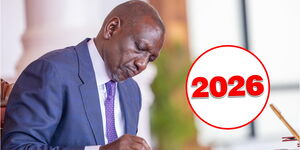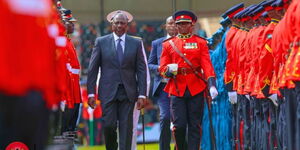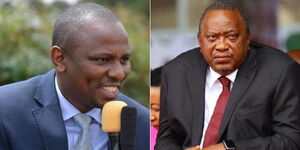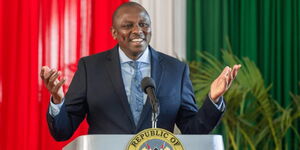Kenya and Uganda have witnessed a surge in terror attacks in recent months, with reports claiming that the United States modified its security policies, resulting in the denial of intelligence to the two East African countries.
The unverified reports further suggested that Washington was reducing its regional efforts to foster robust military-to-military partnerships, effectively hanging Kenya and Uganda out to dry.
Suspected extremists have reportedly exploited this loophole to stage a resurgence, resulting in the injury of 10 General Service Unit (GSU) personnel near the Somalia border in Lamu on Sunday, June 18.
Similarly, on Friday, June 16, suspected Islamic State group (IS) militants killed more than 40 students in Lhubiriha secondary school in Mpondwe, Uganda. Additionally, six students were abducted with the intention of transporting food that the rebels had looted from the school's storage facilities.
The neighbouring country led by President Yoweri Museveni had also lost 54 Ugandan soldiers two weeks earlier in a separate attack linked to Al Shabaab extremists.
Security expert George Musamali, in an interview with Kenyans.co.ke, provided further insight into the allegations that the United States had left Kenya and Uganda vulnerable to terrorist activities by withholding vital intelligence information.
Musamali first expressed his opinion that the two countries bore responsibility for relying excessively on the United States, encompassing aspects such as military training, surveillance, and coordination in peacekeeping operations.
“Why do we expect the US to give us intel, yet we have operatives on the ground?
“The US has resourced us by training our intelligence officers and it is not their responsibility to be collecting actionable intel on behalf of Kenya and Uganda,” he remarked.
Musamali, a former police officer, added that there was a need to draft homegrown solutions to tackling terrorism. He, however, disagreed with the notion that Washington was withholding intelligence reports to punish the two countries.
“I do not think that is the case. Terrorism is a worldwide phenomenon not only affecting Kenya.
“There is an intelligence-sharing agreement between countries in the world concerning terrorism,” he explained why Kenya receives security briefs from international security agencies.
Musamali further noted that security intel is highly perishable, so Kenya should be active in sourcing its own intel.
“Whatever intel you get today, it is deemed irrelevant tomorrow. Measures put in place before become obsolete, and thus we cannot blame the intelligence community for not helping us counter the Lamu attacks,” he added.
He further claimed that the Americans may have also been caught flat-footed by the recent attacks in East Africa.
In March 2023, the US faulted Uganda's law criminalizing same-sex relations arguing that it represented one of the world's most extreme actions against human rights. Security experts declined to comment on whether there was a nexus between the law accented to by President Museveni and the alleged refusal to share intelligence.
The US was yet to respond to the allegations by the time of publishing this article.
Meanwhile, President William Ruto receives daily intelligence reports as the Commander in Chief of the Armed Forces and Chairperson of the National Security Council.
According to an insider, the reports are prepared by the Presidential Daily Brief (PDB) team with intel sourced from local and international sources.
The team comprises officers from the National Intelligence Service (NIS), the Directorate of Criminal Investigations (DCI) and the Military. After assuming power, Ruto made changes in the agencies, appointing Noordin Haji as NIS boss, Amin Mohamed as DCI Director General and General Francis Ogola as the Chief of Defence Forces.












